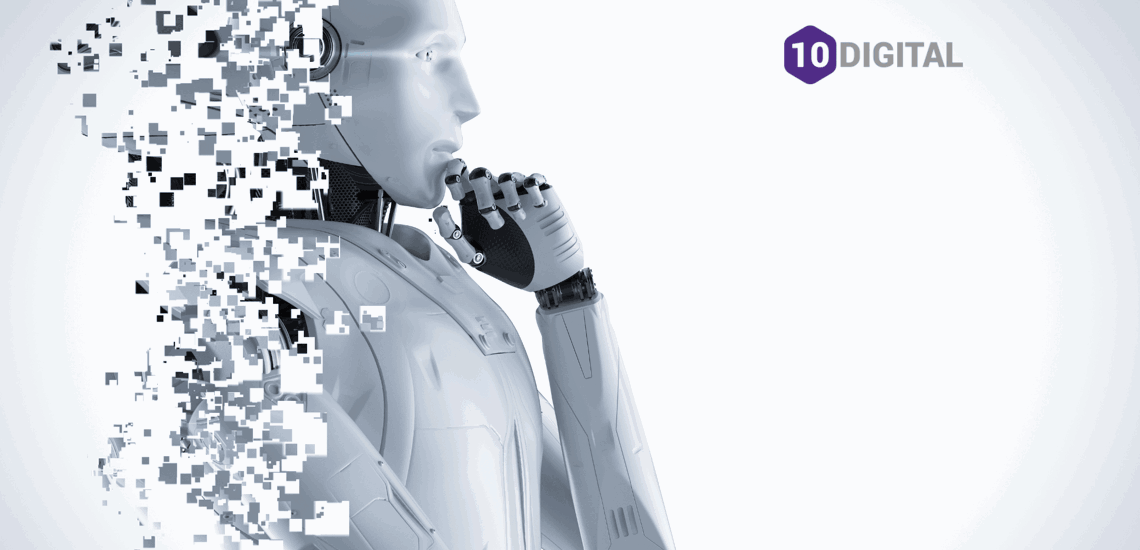Content Marketing otherwise known as non-interruption marketing is essentially creating valuable, relevant and consistent content for your consumers that will engage and create awareness about your brand.
AI - the future of marketing during pandemics

There’s a lot being said about how AI has helped with solutions during the pandemic such as contact tracing, maintaining social distancing and searching for a vaccine. AI has also helped many businesses cope with the disruption with robot cleaners and smart delivery managers. Along with many industries marketing has been hit badly by the Covid-19 pandemic in particular the events-based marketing industry with numerous campaigns cancelled due to the lockdown of events through social distancing measures. Nor has online been immune. Numerous campaigns, months in planning and preparation, have been cancelled as they are not appropriate for lockdown. Meanwhile on the supply side, publishers are seeing a jump in readers – but a fall in revenue. However, for the marketing industry it appears that AI doesn’t have anything to offer, well not quite yet. And why not, we ask? Because AI is driven by modelling the past, it excels at analysing past data, preferably from regularly repeated situations. When there’s no historical data to go on, or when the world has shifted, and the old data is no longer representative — then AI is lost and unreliable.
Recent years have seen phenomenal progress in AI. Yet for flexible intelligence, there’s no substitute for human understanding.
Still, there are lessons we can learn, and ways in which AI can help should we find ourselves in a similar crisis situation in the future; and unfortunately, it seems all too likely that the situation will reoccur. Covid-19 is not the first deadly coronavirus outbreak – there was SARS in 2003, MERS in 2012 and there's no question that there are other viruses out there which could unleash a pandemic. Next time though, we will have some data to guide us, with a basis in comparable data, predictive analytics and AI tools which could prove to be invaluable!
Let’s look at the challenges covid-19 and lockdown have raised within marketing – and how AI could be potentially used next time.
One of the first effects within advertising, was a widespread cancelling of adverts by many companies with the view that it is better to be safe, rather than risk upsetting people at this time. A lot of email marketing was also switched off for the same reason and we saw examples of automated email systems that sent out inappropriate messages, accidentally exhorting people to break lockdown rules.
AI could help us be more selective — filtering adverts to flag which ones are inappropriate for a crisis mood, and which ones might conflict with lockdown rules. Conversely, we also have data on the kind of adverts that actively appeal to people during a lockdown.
A strange effect of the pandemic has been a growth in readers for quality journalism — but a fall in revenue. This is because many advertisers have blacklisted “coronavirus” and related keywords — which pretty much every article of the last few months mentions.
By using more advanced AI analysis of news articles, crude keyword blacklisting can be replaced with more nuanced and emotionally intelligent screening. AI can help us understand whether or not it’s appropriate to place your brand advert next to an article that mentions coronavirus, or similar “bad” words. This would be good for both publishers and advertisers.
Looking behind the ads to the industry that makes them — much of what we do is digital and can carry on regardless of lockdown. However, working-from-home has disrupted workflows and staff. Automated scheduling and task-management tools can provide more dynamic workflows — allowing companies to handle such disruption smoothly.
Finally, let’s consider how advertising can actually help in these bad situations. Advertising is not just for fashion, food and beauty — it is also a key tool for public information. Governments and health-services have been using advertising to distribute information on coronavirus. The marketing industry is not as crucial as medical staff and ventilators, but it does play an important part in supporting healthcare. Smarter and better advertising systems can help spread information when it is most needed.
If you would like to know more about the digital services we offer get in touch with 10Digital.
Content marketing is really like a first date. If all you do is talk about yourself, there won’t be a second date.
David Beebe, TV Producer
1 Innovation Village
Cheetah Road
Coventry
CV1 2TL
Email: enquiries@10digital.co.uk
Telephone: 02476 853 222
Part of the Exasoft Group
